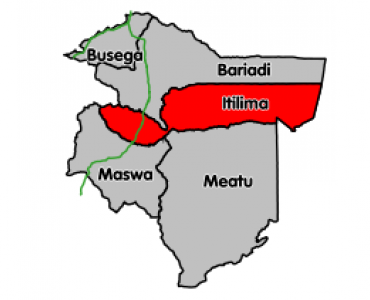Agriculture and Cooperative
Agriculture is the major economic activity in the District. The predominant farming system is subsistence under rain-fed conditions, practiced by over 90% of the population. Major crops grown are banana, beans and maize for local consumption. Coffee (Robusta), maize and Irish potatoes are the main cash crops.
The average farm size is two (2) hectares per household; the limitation being availability of fertile soils. The average household income is estimated at Tshs.450,000 (2010) income per capita. This includes the value of cash and kind production and transfer payments. This is below the national average income for rural households.
There are three main farming systems in Karagwe. These are Kibanja, Kikamba and Rweya. The Kibanja system comprises of banana plot normally inter cropped with coffee, beans, maize and other annual crops and tree species. The Kikamba system is practiced in the periphery of Kibanja and is used for cultivation of annual crops and sometimes left fallow. The soils in the Kikamba are of medium quality.
Rweya system is found in areas of poor quality land and mostly used for provisional farming of mulching grasses, as well as fodder and tree planting. The main coffee marketing organization is the Karagwe District Co-operative Union (KDCU), though there are other private coffee buyers.
Cooperative Union
According to available information Karagwe Distict has more than 128 registered cooperative unions,with Itilima District Cooperative union being the giant one.
Functions
1.To provide advice to economic groups to form Cooperative Societies and register them.
2. Create awareness on cooperative principles.


DED - ITILIMA
Sanduku la Posta: 308 BARIADI
Simu: +255 28 29 863 29
Simu: 028 29 863 28
Barua Pepe: info@itilimadc.go.tz
Hatimiliki ©2016 Kitengo cha TEHAMA. Haki Zote Zimehifadhiwa